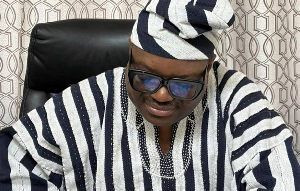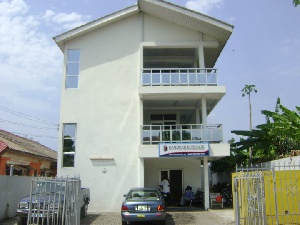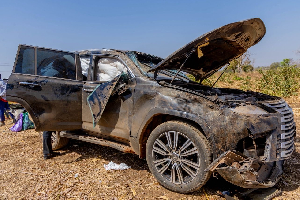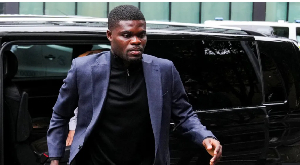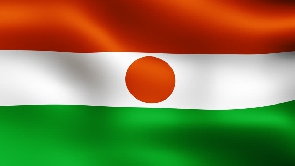*Danquah Institute – The futile attempt to tarnish Nkrumah’s good name must
cease – Ade Sawyerr*
In the early 1970s, several years ago, I had the opportunity to work for one
of the best companies in the world when it was at the height of its might as
a marketing organisation introducing computer technology into the world. Its
slogan was very simple – THINK. At sales school we were taught never to talk
about the competition. We were taught to know our products and services in
and out. We were also taught everything about what the competition offered;
technical specification, prices, special services and offers and how our
products compared with the competition then referred to as the BUNCH that
stood for Borroughs, Univac, NCR, Control Data and Honeywell. We were well
taught that the more you disparage the competition, the more potential
customers felt that you had something to hide.
That advice has served the company very well and though computers are more
pervasive in use these days, having moved from the air conditioned rooms to
the desktop and the laptop, the company still provides the backbone to most
corporate computing establishments. The company remains solid, and the non
disparaging instruction still works.
And so it is worrying that given the opportunity to lecture some students at
some university in America, the lecturer chose to tarnish the image of the
founder of our nation. The lecture incidentally has generated more column
inches in the newspapers in Ghana than in America where the lecture took
place.
I have had to think long and hard about why a Director of an institute that
bears Danquah’s name will devote a whole lecture to Nkrumah instead of
extolling the virtues of Danquah. Did he agree to talk about Nkrumah because
he had exhausted all the research and publications on Danquah in these few
short years that the institute has been in existence or did he gleefully
seize the opportunity to assassinate the character of Nkrumah as a cheap
shot and in so doing disparage a whole continent with his revisionist
version of Akyem history.
I have imagined what I would have done if asked to give a talk on Danquah,
as I was recently asked to do on Nkrumah at a book fair. Would I have laid
bare all the shortcomings of Danquah, to the whole world? I doubt whether I
would have done that. I would most probably have told the organisers that
there was not much to say about Danquah, and would probably have used the
occasion to talk about politics and Ghana. I suspect that I would have
worked into the talk something to project the image and standing of Nkrumah
but I would also have said some good things about Danquah. I would have
talked about how Danquah, a political firebrand in those days of old was
nurtured by the likes of more seasoned politicians such as FV Nanka Bruce
and Akilagpa Sawyerr till he broke with them. I probably would also have
mentioned why Nkrumah broke with the UGCC and gone on to comment on why the
UGCC failed to capture the imagination of the people in the anti-colonial
movement. Though Danquah, in my view, did not realise the urgency of the
agitation hoping the power would have been naturally transferred to them, I
would have praised Danquah and others for recognising the talents of Nkrumah
and for providing him with the opportunity to put his skills to the fight
for the independence of Ghana.
So why did the director of the Danquah institute reject this opportunity
that could have been used to project Danquah from the obscurity of politics
in Ghana and exposed to the whole world? Was it because he did not think
that Danquah really merited being espoused as a great African statesman or
was it because he genuinely felt that none of the students would have had
the faintest idea of who he was talking about.
Perhaps the Danquah people still harbour this unhealthy obsession about
Nkrumah or perhaps it is just their forever unforgiving nature because
Nkrumah stole the prize so they will use every opportunity in the world to
do Nkrumah down in the vain hope that some of the mud they sling will stick.
I pity the executive director of the Danquah Institute for not having much
to say about their hero except that he was one of many who fought for
independence but lost to Nkrumah. I further pity him for his continuing
ungraciousness several years after the battles for independence that pitted
Danquah against Nkrumah. I pity him for his inability to talk about the
scholar that Danquah was for failing to find a gem in the numerous tracts,
pamphlets and letters he wrote. Is it because there is no basis for
comparison with the several books that Nkrumah wrote that are being reviewed
and republished and reprinted several years after his death.
Why did the director of Danquah Institute not produce the document that
Danquah wrote to give the name of the new nation Ghana? Perhaps it is
because contrary to the prevailing myth, Danquah was only one in a
succession of many historians who argued that the people of the then Gold
Coast had a historical lineage with those of the people first of the empires
of Western Sudan. Rev. J.B .Anaman was the first to claim the connection
between the people of the Gold Coast the ‘Genewa’ Empire located near
Timbuctoo whose capital was Ghanah. It was Lady Lugard, wife of the
Governor-General of Nigeria Lord Lugard who first pulled together evidence
to support that claim, suggesting in the process that Ghana might have been
modern Walata. She was followed by the Rev WT. Balmer, the first headmaster
of Mfantsipim School who argued in 1926 that Fantis, Ashantis, Ahanta and
Akans formed part of the ancient kingdom of Ghana and popularised this
through the history curriculum in schools. As Kimble indicates in the
“Political History of Ghana” it was Balmer’s account that “aroused the
interest of the young J.B. Danquah who realized political possibilities of
the idea…[i]n his *Akim Abuakwa Handbook* published in 1928”. So Dr. Danquah
was not the progenitor of the idea; he exploited the work of Lady Lugard and
Balmer and even then proceeded cautiously. Why does he not research and
bring to light the many revisions that Danquah made, first Akanland, then
when reminded that the nation would be bigger than these groups, then
AkanGa, then Khana when further challenged? Should some of those obscure
tracts not be rehabilitated to make interesting reading about the mind of
Danquah and his concept of Akanfo rather than this constant bashing of
Nkrumah which serves no purpose?
The politics of envy never wins anyone an election, negative campaigning
really only serves to call to question what you are hiding. My advice to Mr
Gabby Asare Otchere-Darko is that he must leave the name of Nkrumah alone
and concentrate on his veneration of Danquah. Stealing and tarnishing the
name of Nkrumah will not add an inch to the stature of Danquah as Iago
observed with these words.
Good name in man and woman, dear my lord,
Is the immediate jewel of their souls.
Who steals my purse steals trash; 'tis something, nothing;
'Twas mine, 'tis his, and has been slave to thousands;
But he that filches from me my good name
Robs me of that which not enriches him,
And makes me poor indeed
I would further advise the Executive Director of the Danquah Institute that
Nkrumah was a man of destiny, he must not be resented for seating down at
table with his supposed betters for as the Ga say, ‘a child who knows how to
wash his hands properly is allowed to share the same bowl with the elders’.
Nkrumah certainly knew how to wash his hands properly. And of course he was
human, if they are disappointed that there were mishaps along the way, it
was because he grasped the bull by the horns and led the country to
independence, again an old African proverb that reminds us that the ‘child
who agrees to go to the stream to fetch water is the one most likely to
break the pots’ and not those indolent ones who do not want to work hard but
take the glory later on.
Perhaps if the military government that toppled Nkrumah had not been so
intent to obliterate his name from everything Ghana, there would have been
no need for his rehabilitation and everything Nkrumah would have been seen
in the proper perspective as the one who won for us our independence and who
was bold in his work in the social, economic and political transformation of
our country.
For me Danquah played an important role in the history of Ghana, he was a
good scholar but did not fulfil his potential because he lacked the
political acumen of timing his moves. Danquah was a respectable intellectual
and the Danquah Institute must do more to project his contribution to the
colonial struggle but certainly not at the expense of disparaging Nkrumah.
Nkrumah could see further because he stood on the shoulders of those of like
of Casely-Hayford, Akilagpa Sawyerr, FV Nanka-Bruce and yes Dr. Danquah and
for that we must applaud his place and time in the history of this nation
and Africa and for completing the work of those who came before him.
Nkrumah never dies!
Ade Sawyerr is partner in Equinox Consulting, a management consultancy that
provides consultancy, training and research that focuses on formulating
strategies for black and ethnic minority, disadvantaged and socially
excluded communities. He also comments on social, political and development
issues. He can be contacted by email on jwasawyerr or through
www.equinoxconsulting.net
Opinions of Friday, 8 October 2010
Columnist: Sawyerr, Ade
The futile attempt to tarnish Nkrumah’s good name must cease
Entertainment

Blackmail Saga: Court remands Showboy, case adjourned
Opinions
